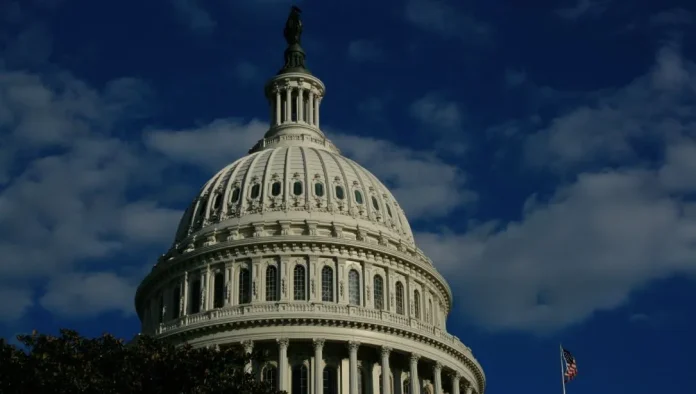Editor’s Note: Story updated 1:30 p.m. with final passage and details about the bill.
After multiple attempts, including one just two days ago, the House on Friday voted to renew a law that allows the government to conduct warrantless surveillance of foreigners
The bill, which passed 273-147, would renew Section 702 of the Foreign Intelligence Surveillance Act for two years, allowing U,S, intelligence agencies to retain spying powers that libertarians and privacy advocates have spent years trying to rein in, but that national security leaders argue are critical to the country’s fight against cyberattacks and other foreign threats.
However, the bill won’t be headed to the Senate just yet. It’s stuck in limbo after conservatives made a procedural maneuver that requires members to vote again on the measure next week. That process, for now, is expected to be perfunctory.
The statute is currently set to expire on April 19. It already was unclear when senators would consider the bill as they could be preoccupied next week with articles of impeachment against Homeland Security Secretary Alejandro Mayorkas.
Section 702 allows the U.S. government to spy on foreigners without getting court approval but also inadvertently collects the communications of U.S. citizens. However, the program can continue operating until April 2025 because the FISA court recently granted a government request authorizing it for another year.
House passage came after members churned through a handful of amendments, most notably a bipartisan one that would have required U.S. law enforcement to obtain a court warrant before searching for information about Americans retrieved by powerful electronic spying tools — a proposal that has been vigorously opposed by the Biden administration.
The amendment was defeated in a 212-212 tie vote.
National security adviser Jake Sullivan, Attorney General Merrick Garland and other Biden administration officials made last-minute calls to members to lobby against the proposal, according to multiple congressional sources.
Ultimately more Democrats opposed a warrant requirement for U.S. searches of Section 702 than in 2018 when the statute was last extended.
The House also adopted amendments to:
- Require the FBI to report to Congress on a quarterly basis the number of U.S. person queries conducted and give certain leaders access to the FISA court.
- Update the definition of foreign intelligence to include narcotics trafficking.
- Allow 702 to be used to vet foreigners coming into the country.
Prior to that series, members adopted by voice vote another bipartisan amendment to codify the National Security Agency’s ban on “Abouts” collection — the gathering of digital communications that contain incidental mentions of foreign surveillance targets.
The latest version of the renewal bill shrinks the proposed sunset to two years, instead of five. The decision by House Speaker Mike Johnson (R-LA) was an attempt to appease far-right Republicans, who believe former President Donald Trump will win the 2024 presidential election and push an overhaul of FISA.
The shortened timespan is also seen by lawmakers as a way to ensure the FBI follows reforms it already has put into place — as well as new mandates under the renewal bill — when accessing the cache of data collected under the statute by the NSA for information about U.S. persons. The bureau has faced heavy criticism from lawmakers for years of abuses of Section 702.
There was also an agreement that the House, possibly as soon as next week, will hold a separate floor vote on data privacy legislation under a traditional procedural vote.
Ahead of the vote, Johnson organized a classified reading room off the House floor for members to view classified information gleaned by the electronic tools.
GOP leadership was also in touch with Trump about changes to the bill, after he earlier this week called on members to “kill FISA” ahead of a failed rule vote.
Recorded Future
Intelligence Cloud.











